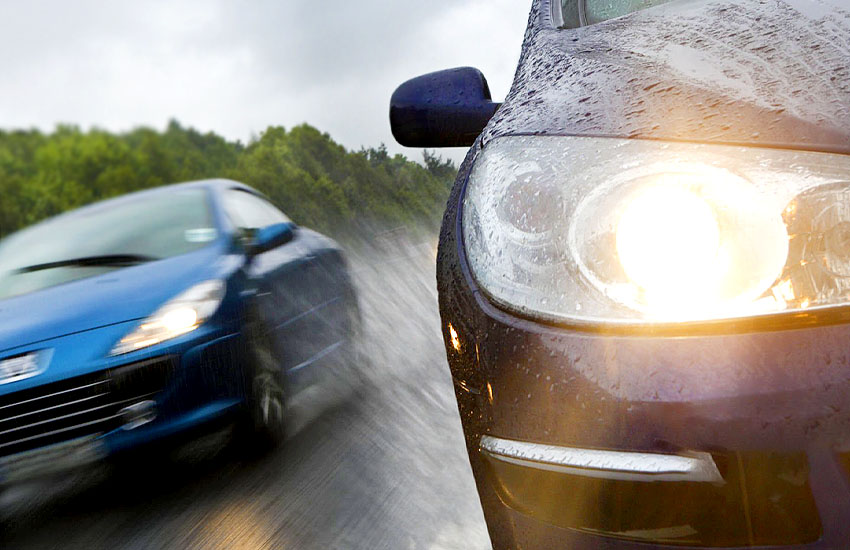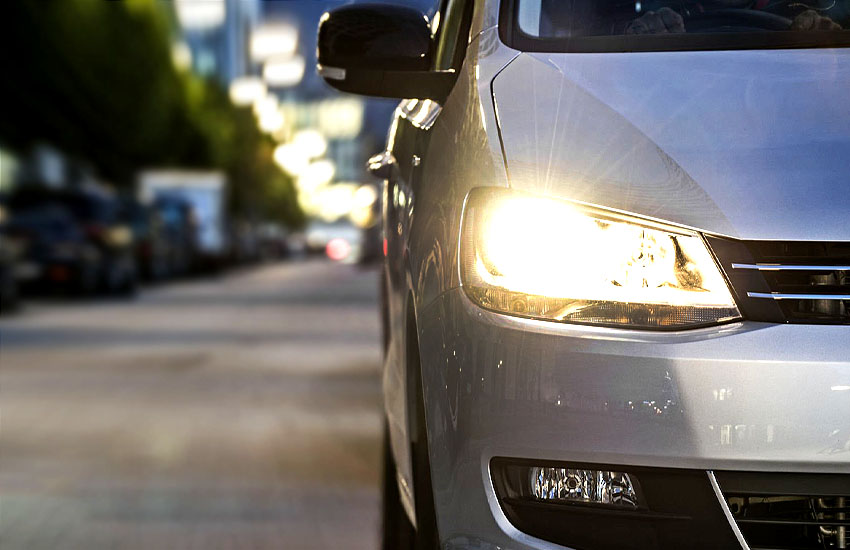You might have noticed that your car lights dim and brighten on their own. This can be really confusing and even a bit worrying.
If your car lights dim and brighten by themselves, it might be a sign of a problem. This can happen if the alternator isn’t working well. The alternator helps keep your car’s battery charged. If it fails, the lights might flicker. Another reason could be a loose or corroded battery connection. Check the battery and alternator. If you’re unsure, take your car to a mechanic. They can find the issue and fix it.
In this blog post, we’ll talk about why this happens and what you can do about it. We’ll cover common reasons why your car lights might be acting up and how to get them fixed.

Common Causes of Dim and Brightening Car Lights
If your car lights keep getting dimmer or brighter, it can be confusing and even a bit worrisome. Understanding why this happens can help you fix it quickly. Here are some common reasons why your car lights might be acting up.
Weak Battery
One main reason for dim lights is a weak car battery. If your battery is old or not working well, it might not provide enough power. This can cause your lights to look dim or flicker. If you notice this happening, check your battery. If it’s old or not holding a charge, it might need replacing.
Faulty Alternator
Another reason could be a problem with the alternator. The alternator keeps your battery charged and powers your lights when the car is running. If it’s not working right, it can cause your lights to dim or brighten unexpectedly. If you think this might be the problem, have a mechanic check it out.
Bad Light Bulbs
Sometimes, the issue is with the light bulbs themselves. Over time, bulbs can burn out or become dim. If your lights are not as bright as they used to be, it might be time to replace the bulbs. Always use the correct type of bulb for your car to ensure proper function.
Wiring Issues
Wiring problems can also cause your car lights to act up. Wires can become loose or damaged, which can lead to inconsistent lighting. If you notice your lights flickering or changing brightness, it might be due to a wiring issue. A professional can help fix any wiring problems.
Corroded Connections
Corrosion can build up on electrical connections over time. This can affect how your lights work. If the connections are corroded, it can cause your lights to dim or brighten randomly. Cleaning the connections or replacing them can help solve this issue.
Voltage Fluctuations
Your car’s electrical system runs on a certain voltage. If there are fluctuations in the voltage, it can cause your lights to change brightness. This can happen due to issues with the alternator or other electrical components. A mechanic can test the voltage to see if this is the cause.
Faulty Headlight Switch
The headlight switch controls your car’s lights. If this switch is faulty, it can cause your lights to behave unpredictably. If you have trouble with your lights, the switch might need to be replaced. Testing the switch can help determine if it’s the problem.
Loose or Dirty Fuse
Fuses protect your car’s electrical system. If a fuse is loose or dirty, it can affect your lights. Check the fuses related to your lighting system to make sure they are secure and clean. Replacing a bad fuse can often solve the problem.
Poor Ground Connections
Your car’s electrical system needs good ground connections to work properly. If these connections are loose or corroded, it can cause your lights to dim or brighten. Checking and fixing ground connections can help improve your lights.
Fixes for Dim and Brightening Car Lights

Check the Battery
Your car’s battery is important for the lights. If the battery is old or weak, it might not give enough power to the lights. Check if your battery needs replacing. If your car has trouble starting or the lights flicker, the battery might be the issue. A new battery can help fix dim lights. If you are not sure, you can have it checked by a mechanic.
Inspect the Alternator
The alternator helps keep the battery charged. If it is not working properly, your lights might get dim. If your lights are not as bright as they should be, the alternator could be the problem. Listen for strange noises from the engine or check if the battery light is on. If you think the alternator is the issue, you should get it checked out by a mechanic. They can test it and see if it needs fixing or replacing.
Clean the Headlights
Sometimes, the problem is not with the light itself but with the headlight cover. Over time, the cover can get dirty or foggy. This can make the light look dim. Cleaning the headlights can help. You can use a headlight cleaning kit, or try some toothpaste and water. Clean the headlight cover gently. This might make the light brighter and clearer.
Fix Corroded Connections
Electricity flows through wires and connections. If these connections get corroded, the lights can become dim. Check the wiring connected to your lights. Look for signs of rust or dirt. If you see any, clean it off carefully. Make sure the connections are tight and secure. This can help make the lights work better.
Adjust the Light Aim
Sometimes, the lights are not too dim, but they are not aimed correctly. If your lights are not shining where they should, it can seem like they are dim. You might need to adjust the aim of the headlights. Most cars have a way to adjust the headlights. Check your car’s manual for instructions. Adjusting them so they shine straight ahead can make a big difference.
Replace the Fuses
Fuses help protect your car’s electrical system. If a fuse is blown, it can affect the lights. Check the fuse box for any blown fuses. Your car’s manual can show you where the fuse box is and which fuse controls the lights. Replacing a blown fuse can often fix dim lights. Make sure to use the correct type and size of fuse.
Test for Electrical Problems
If none of the above fixes work, there might be a deeper electrical problem. It could be something with the wiring or the electrical system. A professional mechanic can help with this. They have special tools to test the electrical system. They can find and fix issues that you might not be able to see on your own.
Dim and brightening car lights can be a hassle. Start by checking the bulbs. If they are old, replace them. Look at the battery and alternator to make sure they are working well. Clean the headlights and check for corroded connections. Adjust the light aim if needed, and replace any blown fuses. If you still have trouble, a mechanic can help with electrical problems.
Fixing dim car lights often involves a few simple checks and changes. By taking these steps, you can make sure your car lights are bright and clear. This can make driving safer and more pleasant.
I hope this guide helps you understand why your car lights dim and brighten randomly. It could be a small issue, like a loose connection, or something more serious. If you’re unsure, it’s always best to have a mechanic check it out. Taking care of it now can prevent bigger problems later.


